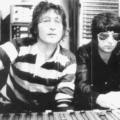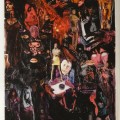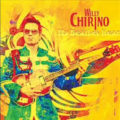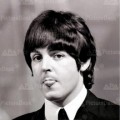Latest posts by Michael Gerber (see all)
- Memories of Nicholas Schaffner and The Beatles Forever - January 4, 2026
- Old Draft: Beatles Folk Memory 1970-1995 - December 8, 2025
- Lights are back on. - December 8, 2025
I‘d like to try to break out some of the more important issues brought up in comments, and put them in one themed thread, so browsers/new users of this blog can find and follow the discussion more efficiently.
Please continue your discussion of the Beatles and the UK class system in the comments here. Thank you.













Michael G. made this comment a few years ago, and I think it illustrates how perfect their timing was:
And on the topic of Lennon looking askance at McCartney’s singalong family, I wonder if (in addition to class) it’s simply the way the product of an unhappy family regards a happy family… with a combination of contempt and envy.
That’s what I was thinking. If John actually said he was embarrassed by the scene of Paul’s family, let alone watched the James Paul McCartney special at all, it would have been because of resentment that Paul had a large, happy family and he didn’t. I don’t think John looked down on Paul for being working class, or anyone that was working class. BTW, whoever said there were more cringy moments in the JPM special than Paul’s family is probably correct. The half-male/half-female dancers for one. And wasn’t it in that show where a critic said about his performance of “My Love” that Paul looked like he had just sucked a lemon?
This has always been my take too, Sam. An element of cringing because it was a bit hammy, but also because he felt that strange mix of contempt and envy. Bothh because he didn’t have it and couldn’t relate to it, but also because I always got the feeling John longed to be back in England sometimes and missed his roots, and that was a very English scene filled with a family he grew up around. I wonder if made him nostalgic or something similar. But he wouldn’t cop to that, so it just became ’embrassing’ to him.
I think John’s relationship to class is really interesting. I think he’s far more working class than is acknowledged these days, but also see some of what Elizabeth was talking about in the other thread, with some elements of having a bit of middle class snobbery about him.
Supposedly he really loved the Englishness of Bermuda when he visited there in 80, and the night before his murder Aunt Mimi confirmed that he said he would be visiting soon
What surprised me was George Martin’s place in the UK class system. For years I thought he was the posh gentleman in a necktie who cleaned up the Beatles’ sound. I had no idea (until I read it here) that he’d been born in a working class family and he consciously erased his cockney accent.
@Hologram Sam- Do you remember which article on HD mentioned George Martin’s background?
Kir, here’s a link to the HD George Martin archives — hope it’s helpful.
https://www.heydullblog.com/category/george-martin/
I should really go back and tag everything more better. Should we hire an intern?
LOTS of old posts to tag, that’s for sure! Always nice to take a wander around the archives.
https://www.theguardian.com/books/2001/jun/30/books.guardianreview1
…his father, who had until then worked as a carpenter, was forced to sell newspapers in Cheapside.
Why does British poverty always sound so quaint?
@Hologram Sam- Thank you
fwiw there’s more to George Martin that almost never gets talked about for whatever reason (he totally abandoned his first wife and family) to marry his secretary and start a family with her. There was a dark side there that the media didn’t look into much
@Nancy – Thank you!
On social class and The Beatles, I think a lot can be overstated on this on its own. I mean, once Paul moved to Forthlin Road, he didn’t really live in a world too dissimilar to John’s world. Yes, his house was on a small council estate, but as he himself said, it was in a relatively posh area, with decent private housing all around him. He went to Grammar School (in itself a significant entry point to a middle class life, offering opportunities for social mobility not provided by a secondary modern school career), he didn’t really have a scouse accent and many of his friends lived in good middle class housing very similar to John.
While John may have lived in very nice 1930s housing stock with Mimi, but Julia lived in a council estate ten minutes walk from Paul’s house, his grammar school, Quarry Bank, would have had a similar mix of boys from private housing and council housing – ultimately all coming from families sharing a sense of the importance of aspiration and education.
To an extent, remaining in Speke, George was more working class, but still from an aspirational family – you didn’t go to a grammar school if your parents didn’t have hope that you’d end up in a professional role – there was a greater financial burden going to a grammar than a secondary modern.
This is no secret, but the only Beatle from a solidly working class background is Ringo, you only have to get the 86 or 82 bus from Allerton/Aigburth to get a sense of that divide. The Dingle with its two up, two down nineteenth century terraced houses with no bathroom and an outside toilet is a million miles from even 1940s/1950s council housing stock with their own bathrooms and toilets, smaller, but similar to those 1920s/1930s houses which surround Paul’s Forthlin Road house in the suburbs of South Liverpool.
I think the discussion around social class is a bit of a red herring, the issue around the Beatles was not social class – many of the pre-Beatles rockers were from working class backgrounds – but geography. The Beatles were northern, it was this that set them apart from the off. To understand the Beatles, is not to understand social class, but to understand the cultural north south divide in England. Being northern, especially then, knocked you down a notch on the class system. You might live in a very nice private house, but if you said ‘pass’ instead of ‘parse’ it fed an illusion of a lower social class. The north was for industry and grime, that myth then went round the world with the idea that the Beatles were from the slums, in 3 out of 4 cases that was not true, but they were northern, from the provinces, that made them other.
That otherness also made them who they were. Their humour, their chippiness, their speed of wit and the whole ‘screw you, I won’t do what you tell me’ is not simply a working class attitude, but a certain kind of northern attitude, found elsewhere in northern England (especially the North East), as well as Glasgow and Dublin.
The class system played its part, but as ever it’s place that made the real difference. If they’d been working class lads from Kent, they wouldn’t have been The Beatles. They had to come not just from the north, or from Liverpool, it was coming from suburban South Liverpool that made them The Beatles, middle class educated lads from a place where grit and humour rules. Only South Liverpool could have created that mix that we so love in the group.
Yes, I live in South Liverpool! (In one of the ‘posh’ houses Macca references when describing Forthlin Road and its environs in ‘Many Years From Now’. Legend has it he delivered papers in my street.
Allerton Andrew, thanks for your comment. These are the sort of details I as an American never really perceived.
I have questions: How has Liverpool changed since 1957, and how has it stayed the same?
If Lennon/Harrison could come back to life and take a walking tour, would they be appalled at how different it is from their childhood?
Or if the teenaged Beatles could have traveled forward in time to tour 2021 Liverpool, would they be shocked at how little they recognized?
Thanks for this info, @Allerton Andrew! As a USian I don’t think that I can ever really understand the English class system.
.
One thing is though, Paul didn’t grow up on Forthlin road. They moved there when he was 13. And IIRC their previous home, which they were only in a couple years, was in a poorer neighborhood, and the one before that was poorer still. I believe 20 Forthlin was the first house the McCartneys had to pay rent for, which I assume they could only afford because of Mary’s income. Then a year later she died. So the security of Paul’s perhaps-first solidly middle class home was almost immediately dashed to bits. Again, I don’t really understand the social ramifications of class in England, but in terms of Paul’s inner world and experiences and attitudes around money, I can certainly see why “working class” fits.
.
I’m also pretty sure George and Paul were both on scholarships at the Institute?
@Annie M – Forthlin Road was a council house, so definitely working class. However, it was located in a middle class area. Allerton was/is lovely – very leafy, very suburban. But like all areas within UK cities (Knightsbridge in London perhaps being the only exception), it has pockets of deprivation.
That said, the council estates were newer, less densely populated and overall much nicer in the 1950s and 1960s. Also, there was a much stronger work ethic among the working classes in general, and it was pretty shameful to be out of work. Well, that, and the fact that if you didn’t work, you didn’t eat. Things were very different.
Lemmy Kilmister once commented that one of the reasons he prefers the Beatles to Stones was because he saw them as a rougher lot than the more sissified Stones. Mentioned Ringo being from The Dingle which he said was like the Bronx.
@Allerton Andrew, I was born in the North of England, and you have explained this wonderfully. There is a North/South divide in Britain and it still exists today, and it did explain a lot about the Beatles rise to fame and fortune. However, I think that living in a certain type of house in a certain area doesn’t explain class alone. Ringo was disadvantaged from the very beginning that’s true, but despite never having a grammar school education, he also never spoke with a scouse accent. None of them did. I do think that Paul was culturally working class in a way that John wasn’t, even though Julia also lived in a council house. Paul’s parents grew up seriously disadvantaged, particularly his mother, even though she was able to push her family up the social ladder through her work. Paul recalls playing on the ‘bombies’ as a child in the areas most badly hit by the war. It’s right about the aspirational role of grammar schools though. I think this is where Paul and George truly joined the ranks of the middle class, rather than at home. I found it strange, though, how both John and Paul attempted to flaunt their Liverpool/working class roots post-1970. John definitely exaggerated his accent once he met Yoko Ono and in pushing his political leanings and causes. It could be blamed on drugs perhaps, except there is a YouTube interview of John in 1978 where he is being asked about the Beatles’ financial and legal situation. His speech is John Lennon, circa 1966, serious and attentive. And Paul: “I know I’m a rich and famous rock star but at heart I’m still a working class boy, y’know”. And proceeds to pronounce his ‘g’s as in sing ging, and mother ‘Muurry’ and ‘nightmurr’, when he never spoke like this before. Michael McCartney has a peculiar habit of referring to his brother as ‘our kid’, a phrase that I don’t think has been in use in Liverpool for years. Like yearning to go back to a bygone era that doesn’t exist anymore. It was only George who truly embraced the middle class and seemed comfortable in his skin. And Ringo was just Ringo – he was above it all, as Hunter Davies so succinctly described.
@Lara – not much to disagree with here! I think you’re pretty much bang on in relation to ‘cultural’ middle class from which John was hewed (although maybe not via the ignoble Alf).
I also think you’re right about the Macca Bros and use of language/accent. I would debate the scouse accent and Ringo though. Although I live in the ‘pool, I’m from Sunderland (though my daughters identify as scouse), so I would not want to pretend to be a scouser myself.
However, I think what each Beatle had to a greater or lesser extent was an old fashioned south Liverpool accent, which is softer than the north-end accent – the stereotypical version which sounds as if the speaker is gargling with mouthwash as they speak. No Beatle had that accent, and the pre 1980s accent is different, so I think it’s less that they didn’t have a scouse accent, more the accent around them was softer, and different to the one we know now. My wife and I tend to refer to older people from round here as having a Beatles accent.
Gosh what fun this discussion is! (Much better than did Paul die in 1966 and were John and Paul lovers? – the answers to which are, as any fule kno: ‘no, it was Ringo who died in 1966 when the sign for the Empress pub fell on his head after he’d been out for a few light ales – hence the cover of Sentimental Journey ’ and ‘yes, they were – they were both lovers of light opera, specifically Gilbert & Sullivan’).
@AllertonAndrew – Yes, the Beatles all spoke with old Liverpool accents. I don’t think it was unique to South Liverpool, which is where I grew up actually, but I had family in Wallasey who just sounded the same. On the other hand, my cousins in Runcorn (which isn’t even in Liverpool!) spoke really broad scouse – much broader than me – so maybe it was a regional thing.
I agree with you that Paul, living in leafy Allerton and attending a prestigious grammar school, would not have felt inferior to any of his friends. There would have been loads of boys at the Institute who lived in council houses – all of them being judged on academic merit, all of them getting the same opportunities for social mobility.
Where I do think he felt different was in Hamburg. I doubt whether he’d ever given his ‘niceness’ a second thought before then – it was just how he’d been conditioned to be. He been taught old-fashioned working class values – work hard, don’t burden other people with your problems and always try to please. People who are born into privilege have very different values, and in my experience, shudder at the very idea of anyone trying to please (they don’t beg anyone’s pardon, by the way). Pretentious people born into privilege, like the Exis, are even worse.
I do agree that the North/South divide is a complicating factor, and I’m quite sure that all the Beatles experienced prejudice because of where they came from. The UK is still like that and I doubt whether it will ever change.
Extra points for the Molesworth chiz chiz
@hologram Sam – superb question – the quick answer is that I think they’d notice a world of difference in some ways and very little difference in others. If John were to cycle from Mendips to Calderstones school (the name that Quarry Bank now goes under), he wouldn’t notice too much difference as he cycled through the leafy Calderstones Park, the biggest shock would likely be girls wearing his old school tie as well as boys, it now being mixed.
The suburbs are not very different. Geographically town would be a bit of a shock in places, but familiar places abound to keep him anchored as he walked past the bombed out church and down Bold Street to the ‘Jac’.
The biggest shock to John, and to a lesser extent to George, would be the cultural changes. Where once Liverpool was grubby and it’s buildings marked by blackened smoke, now all is clean and returned it original stone, where once it was industrial, it is now all hip clubs, bars and coffee houses. Liverpool is cool in a way that would not have been imaginable in 1957. Now, undoubtedly that cool is due to The Beatles, but also to football – while Liverpool becoming the European City of Culture was also a game changer. Money was spent and visitors came, and compared to most cities it is in rude health, despite real pockets of serious deprivation. But the south end – the suburbs – are beautiful, with parks and woodland to walk – all which would be recognisable to John and George.
I think they would be proud to see the city as it is now, and the role they played in making it so – a real regret for me is that John in particular never got to see his home as it’s become. It would still be home, and although his indelible mark remains, the city will always miss him and mourn that too early loss.
George saw some of that change , while a woodland walk will soon open dedicated to him very near to here, a wonderful way to remember someone to whom nature meant so much.
@Allerton Andrew, would you expand this into a post? I love it.
Love the info @Allerton Andrew!
I don’t know if this is a Beatles and Class thing but it’s something I find fun, but I love the anecdotes about the Beatles going to fine dining restaurants and then asking the chefs to make fish and chips or egg and chips, or John and Paul ordering pizza to a restaurant cause they didn’t like anything on the menu. Also Ringo supposedly taking a suit case of baked beans cans to India. They were definitely working class/middle class English boys in that regards lol. I think the most adventurous eating habits I’ve read is maybe John loving sushi, which was might have been considered fine dining and adventurous in the 80s I don’t know.
@LeighAnn, IIRC sushi was rare in the US in the late 70s, even in New York. Its popularity really tracked with the emergence of the Japanese business/banking class a decade later.
Well, John had a Japanese wife with whom he traveled to Japan more than once, and they were eating macrobiotically in the early 70s (fish and rice), so it’s maybe not too adventurous that he’d develop a taste for sushi, I guess? I do remember sushi being a trendy “yuppie” thing in the US in the mid-80s. Think Claire in “The Breakfast Club.”
Yes, I think that’s exactly right, @Kristy.
Regarding Ringo and the suitcases of beans in India…that was more to due with Ringo sickly childhood. He was chronically ill with various things (peritonitis being one of them) and therefore had to adhere to a very bland diet as a result. He would’ve likely not been able to handle the native cuisine in India and decided to bring along something more familiar and safe
@Michael – would love to!
@Annie – previous two houses to Forthlin Road were in Speke (‘where the airplanes’ are as George memorably puts it in the Radio Clatterbridge interview in 1962), which is where George also lived. I have two friends, Paul and Mike, (not those ones) who grew up there, and although it’s a large council estate, it’s not quite as you’ve described, though it does have its moments..and yes, it’s light years from Allerton.
On the rent point, if they did not paid rent it would be connected to Mary being a midwife and their living in a NHS owned house (and the number of people I’ve talked to from Speke who tell me Mary brought them or a sibling into the world would suggest she did nothing else but deliver babies night and day long after she had actually died). Certainly, people generally would pay rent to live in Speke. It was built between the 1930s and 1950s so fairly modern at that point.
Re scholarships at the Institute – not sure, but it was not a fee paying school you just needed to pass the 11Plus, so no need for that kind of scholarship, they might well have had funding for uniforms, PE kit, lunch and books etc , but there was still bus fares, for 45 minute trip into town where a Secondary Modern was much more local and walkable. Grammar School was a divide of sheep and goat proportions, friendships ended based on that separation at 11.
I have visited LIPA (housed in the Institute) a few times, to visit the library – I’m a librarian in a university- and to see the original entrance to the school is quite something, any Speke Ted must have been made to feel as if he was entering a new world quite apart from their previous experiences. It’s list of alumni is a who’s who of the great and the good.
@allerton Andrew: see this is why, to this American, the intricacies of what define class differences in Britain remain opaque. It would never occur to me that bus fare, or length of bus ride, would have any significance. And any “prestigious” school in the usa will inevitably charge tuition (but offer scholarships).
and my point with the tuition is that it sets up a strange dynamic between students, as some are there because of their family’s money/connections and some got there on scholarship. So the upper/middle/working class distinctions are (I guess?) more felt than in the more egalitarian British grammar school system which are based on test scores alone.
That said tho… why do you say going to the Inny make Paul feel LESS working class? If it was normal and unremarkable for all walks of life to be represented, why would going to the Inny affect his class identity at all?
@Annie – It was normal for all walks of life to be represented at a grammar school, but it required a commitment from a working class family that was difficult and sometimes impossible.
The kids who didn’t pass the 11 plus went to the local secondary modern, and they left school at 14 or 15. This meant that the family had an extra wage coming in, and it was very often relied upon. Kids who went to the grammar left school at 17 or 18 – that’s 3 or 4 years of extra support from families who were often struggling to make ends meet. And factoring in uniform costs, bus fares, etc, it was unaffordable for some families. My mum’s sister had to leave her grammar school when she was 14 because my grandfather insisted that she had to get a job. He just couldn’t afford for her not to be working.
Having a child at a grammar school involved a sacrifice on the part of a working class family. That’s why I can’t get over the arrogance of George getting a place at the Inny and refusing to apply himself. That sort of attitude really was unusual – most people would have far too much respect for their parents to ever act like that. Paul’s respect for his dad was a lot more normal.
Ahaaa, thank you, Elizabeth! 🙂
Aha! Thanks Elizabeth, that clears it up a lot for me! 🙂
@Elozabeth – you are bang on re everything but especially Hamburg! Agree entirely about that shock. John had Art School to cover any gaps in conversation, so knew enough to bluff.
@leighann – Food and The Beatles is a great subject and a wonderful to map their (and our ) social class mobility. From egg and chips, ‘curry and jelly and tea’, and Heinz Beans to vegetarian cook books and macrobiotic food. Quite a journey, and very very telling.
@Allentron Andrew
I once read in The Spectator (the British version mind) a quip that the English class strata are so well understood by the UK residents that one can tell where another fits in merely by how one adds a sugar cube to his/her tea.
A purposeful exaggeration I would imagine, but were/are the gradations of class that finely sliced from WW2 onward? In other words indicators abound other than RP and 5he old school tie.
Someone made an interesting remark regarding Paul emphasizing the final “g” in a word. I have noticed that from him and we hear it in the U.S. in the Northeast, but also in some surprising other locals. I have heard it from well educated and very well spoken Southeners. It has quite a geographical span from the UK through the U.S.
@Neal There is a lot of truth in that, and I suspect The Spectator was channelling Nancy Mitford there, with her ‘U’ and ‘Non U’ (U being upper class). The example that tends to be rolled out is milk and tea – MIF (milk in first) being a terrible giveaway. Of course the truly classless drink tea without any milk, like me! So the Speccie was not really exaggerating, or not by much.
A lot of that is a bit old fashioned, but some still sticks. One giveaway is what one calls one’s evening meal. ‘Tea’, ‘dinner’, ‘supper’ are all gradations on that scale. Although ‘tea’ tends to working class northern and ‘supper’ tends to be upper middle class/upper class southern. I’m a northerner who has ‘dinner’, so you can make your own mind up where I am placed on the social stratification.
Yes, I would agree that post-war things have changed, and John would notice huge differences, but words can define class, but it’s more mixed now. Toilet is well used, lavatory much less so, and that once would have been a strong signifier. Other words still do make a difference – serviette or napkin?
Given how many of our recent Prime Ministers have gone to the same school as each other and as that of PMs from centuries ago, it would clearly be a lie to say social class has disappeared, but it’s signifiers are possibly more blurred (RP is all but dead, even the Queen isn’t as posh as she was 60 years ago!).
That ‘G’ is very north west England, I first noticed in Mancunians, but it’s also prevalent in Liverpool and my daughters have it too. I’m from further up in the North East of England and I don’t have that ‘G’.
But do you have dinner at lunch or tea time, @Allerton Andrew? Dinner at lunch time is a dead giveaway that someone is northern working class. Dinner at tea time not so much.
I’ve lived in the south for years, so I find it really jarring now to hear anyone refer to lunch as dinner, though it still pisses me off when my kids say ‘what?’ instead of ‘pardon?’. To me, ‘what?’ sounds so rude and disrespectful (and to be fair my kids probably say it to wind me up), but it’s totally normal and acceptable for middle class kids in the south to say that. Just not in my house!
It is true that class signifiers are more blurred now. RP has apparently been replaced by an ‘Estuary’ accent. Nearly all kids in London speak with this ‘Estuary’ accent, even little Prince George apparently. You can’t tell from someone’s accent whether they have been to a private or state school, though there are more subtle indicators, of course.
Class tensions have definitely not disappeared however, and might even be worse than they have ever been – though perhaps it’s more accurate to say that tensions between the north and south are worse? I’m not sure, but I don’t recall things being as divided as this in the past. I doubt whether middle class London will ever forgive the north for Brexit!
The discussion of pardon vs what brings to mind an outtake of Paul recording Blackbird and saying “Pardon?” to someone. Pardon sounds FAR more refined and polite to my American ears.
Indeed Andrew. That would have perfectly fitted Nancy Mitford. I laughed at your reference to her as SWMBO was re-reading Mitford’s The Pursuit of Love a week or two past and could not help but read certain passages aloud.
To both Andrew and Elizabeth: I find your regional variations of the use of the word dinner quite interesting. It reinforces to me as a life-long Anglophile how finely sliced some of these geographical and cultural gradations must be.
The French historically ate the biggest meal at mid-day and used disner (later diner) to describe it. Souper was their term for the smaller evening meal–thus supper.
The English nobility (and in turn the English language of course) adopted so much from French that I would have thought that dinner would have been the English U (a la Andrew’s tip of the hat to Mitford) term for the mid-day meal and supper for the evening repast.
It sounds as if even an English noble of old could be at home in a Northern pub asking “What’s for dinner?”
Somewhere are pictures of George Harrison eating Heinz Baked Beans so I guess whether one says dinner or souper/supper it all is equal if it tastes good!
For me, a working class Brummie, the main meal of the day is dinner whatever time we have it! We had our dinner at lunch time, as we had school dinners, and then tea in the evening. Once I started working I took sandwiches for lunch and had dinner at tea time! I’d never come across anyone having supper except in Enid Blyton’s Mallory Towers books!
On the subject of the Beatles speaking “old” Liverpudlian…
As a history buff, I’m endlessly fascinated with the subject of extinct accents. I remember watching a documentary on the Civilian Conservation Corps, FDR’s Great Depression legislation. I saw newsreel footage of young men, teenagers, being interviewed, and they sounded like old men! The accents, vocal inflections… reminded me of old men of my father’s generation, how they sounded in their 80s.
My father worked in the CCC as a teenager, but I didn’t see him in the newsreel.
I saw your comment, @Hologram Sam, and it keeps making me think of my father’s old Bonac accent that he lost living in the US Midwest. My cousins and I discussed the dying of the old guard at our father’s funerals and bemoaned the fact that our dads grew up in a culture that had lasted for hundreds of years and is now being swept away. The Bonacker accent is described a little in this article about The Bonac, which is basically the area around East Hampton, on Long Island in New York.
.
https://en.wikipedia.org/wiki/Bonackers
.
When I found the Wiki article I was thrilled, because it basically described everything my father had ever told me about growing up in Springs. My grandfather was a fisherman and farmer just as described.
.
To make this Beatles-related, once on a trip to the Bonac my cousin drove me by Paul McCartney’s mansion in East Hampton.
Have to say as a lifelong NY/NJ resident that whenever I see old films of New Yorkers speaking from the 50s…60s…70s, it astounds me just how heavy and pronounced that accent is. I was watching Frazier/Ali 1 the other day on youtube and couldn’t help but smile when I heard the ring announcer give the results in an almost cartoonish NY accent. But that’s how they spoke. Nowadays you hardly hear it anymore…it’s gotten so much flatter and milder
@Dave
Interesting observation. Now that you mention it, it is remarkable how strong many of of those accents were compared to today.
I wonder if it is safe to say that there has been a leveling of accents across the country in the last few decades? Areas of the far Northeast and the coastal regions of North Carolina spring to mind as still having quite distinct accents and speech patterns, but everywhere else seems to be melding into uniformity.
@Sam
Do you mean their patterns of speech and word choice or the actual sound of their voices in which even a younger person sounded older?
If the latter, is some of that due to the recording medium and things like the tape speed?
However…I know there were efforts by linguists starting in the 30s and 40s to go around and record the regional voices in the U.S., and those that I have heard snippets of (NPR or podcasts or wherever) certainly don’t sound like the way we talk today!
The teenagers in the 1930s newsreels had accents and patterns of speech that teenagers today don’t have. It wasn’t the recording medium or tape speed, it was their vocal mannerisms.
There’s something recent I’ve noticed in my lifetime: the spread of “upspeak” where a young person ends each sentence like a question. There’s also something called vocal shreddding that I’ve noticed.
It’s a fascinating subject.
This reminds me of bit of British slang some Americans might not be aware of:
To “arrive” is slang for “to cum” or ejaculate.
This gives Harrison’s line in When We Was Fab, “Arrived like strangers in the night” a double meaning. Most American listeners assumed he meant traveling from town to town on tour. Well it does, but…
I’m British and I’ve never heard of that!
This discussion about accents reminds me of the old quote about the UK; where once “an Englishman couldn’t open his mouth without making another Englishman hate him”
Sam, I remembered that as being a lyric in “My Fair Lady” so I googled it and was reminded that “Lady” was an adaptation of Shaw’s “Pygmalion.” So Shaw gets the credit. (It’s also paraphrased in the lyric of “Why Can’t The English Teach Their Children How To Speak?” from “Lady.”)